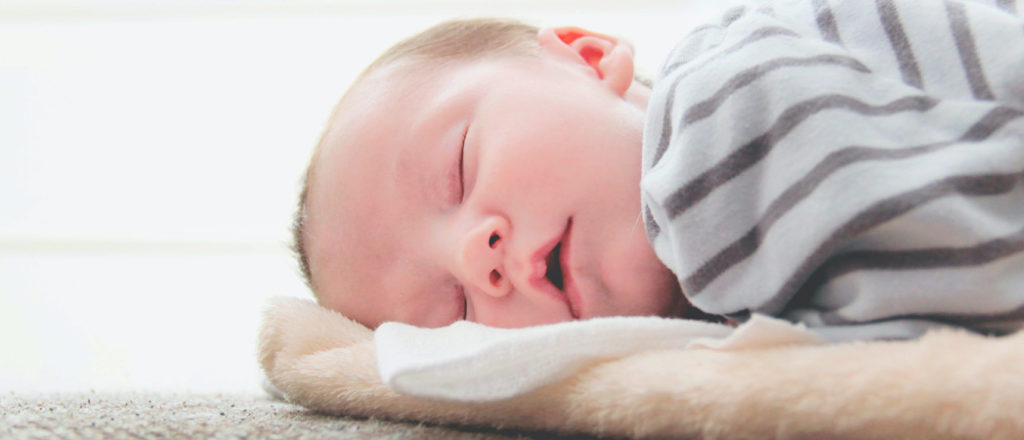Usually snoring is associated with adults especially those suffering from respiratory diseases, but imagine that a baby or even worse a newborn spend the nights snoring, is not something we expect to hear, but it happens sometimes and the important thing is to know why it happens, when it becomes a danger to the health of your little ones and how to help them.
According to experts snoring occurs when the soft tissues of the throat relax and cover the airways, so when inhalation or exhalation is performed the tissue vibrates causing an audible hissing sound, it is more common than it seems without causing alarm in parents.
When to be concerned?
It is said that at least 1 out of every 10 children snores at an early age, and it is usually the recurring question in pediatric offices. Is it normal for my baby to snore? Can it be dangerous for him to snore at such a young age? How can I prevent this from happening? These and many other questions are often asked by parents of snoring children.

Unless you have a cold, nasal congestion or a significant respiratory condition, otherwise snoring should not occur in infants, and you should consult your pediatrician.
Some possible causes may be:
- Allergies associated with the airways.
- Asthma.
- Deviation of the nasal septum.
- Throat infection.
- Sleep apnea.
In general, snoring during childhood does not cause major problems unless it persists, is daily and getting louder to the point of disturbing the child’s sleep, which is already a cause of alert and we must look for possible causes
Learn a little more about these causes.
- Adenoids: it is a lymphatic tissue similar to tonsillar tissue located behind the nose and that can grow due to recurrent viral infections and when this occurs it obstructs the passage of air through the nose which causes snoring.
- Palatine tonsils: they grow in the same way as the adenoids, and it corresponds to evaluate by a specialist to give a proper diagnosis and possible solution or treatment.
- Laryngomalacia: it is said to be an anomaly that occurs at birth or during the first two weeks of life, in these cases the baby is born with a larynx that collapses when they inhale, so breathing is noisy, which causes snoring not only when sleeping but also when they cry or sleep on their back.
A baby may snore eventually, they are not yet able to complain about not being able to breathe or having a bad night so you should watch closely for any symptoms such as:
- Retraction of the chest to breathe, you can see the ribs every time he/she breathes.
- He usually eats poorly, eats slowly, does not chew well and does not gain weight.
- When snoring may present intervals of apnea which is when breathing stops.
- Cyanosis which is a blue coloration of the skin due to lack of oxygen.
- He usually eats poorly, eats slowly, does not chew well and does not gain weight.
If in doubt consult your pediatrician, go to an emergency medical appointment in case the symptoms persist, take care of your baby, remember that observation is the best prevention.














